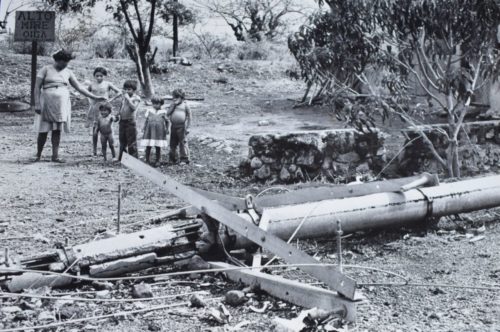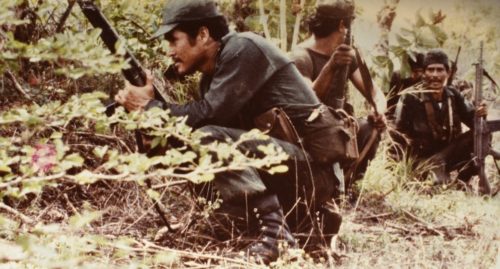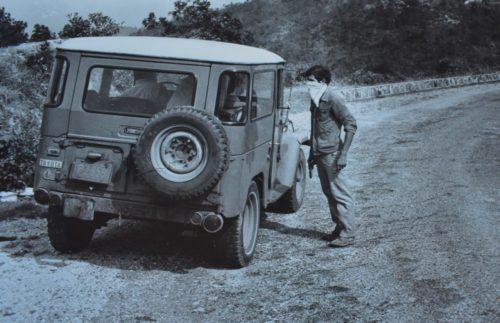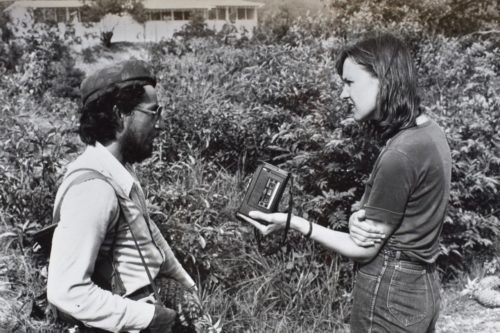Caveat lectorem: When readers submit comments, they are asked if they want to receive an email alert with a link to new postings on this blog. A number of people have said they do. Thank you. The link is created the moment a posting goes online. Readers who find their way here through that link can see an updated version by simply clicking on the headline above the posting.
The Panjshir Valley had been the one province of Afghanistan the Taliban had not conquered until last week. When it was conquered, provincial commanders blamed their loss on Pakistani aid to the Taliban. Many residents of the valley are Tajiks, as are many residents of neighboring Iran. As a result, the loss upset Iran, along with Pakistan’s traditional adversary, India.
Craziness. But that seems typical of warfare. As a reporter for The San Francisco Examiner, I first observed combat craziness during El Salvador’s civil war 38 years ago. I was startled by it. As it happened, I told my story to a reporter from The Des Moines Register, which soon put it in print:
Harrowing experiences in war-torn El Salvador
By Jerry Perkins, Register Staff Writer
(Photos by Dave Mitchell added)
SAN SALVADOR, EL SALVADOR. We went looking for guerrillas; instead we found the war. Photographer Rich Rickman and I left the capital city early one morning by taxi and headed east on the Littoral Highway. Our taxi driver, Jose Alvorado, carefully instructed us that we were not to tell the army where we were headed, a small village named San Augustin (45 minutes southeast of the capital) where the guerrillas often come to buy supplies….
_________________________________

A Salvadoran peasant family in whose front yard guerrillas bombed a utility pole. The railroad sign says, “Stop, Look, and Listen.”
____________________________
As we drove up the highway, Salvadoran troops were walking toward the river and came up to the taxi to beg for water. One was carrying a limp iguana, a bullet hole in its head. ‘There’s a war going on, and these guys are wasting ammunition on iguanas,’ I said to Rickman.
Up ahead , we could see the taxicab hired by David Mitchell of the San Francisco Examiner and Cynthia Clark, his translator. Mitchell and Clark, standing beside a tree, were taking pictures of a Salvadoran soldier, his shirt unbuttoned to the waist, his M-16 blazing away. I thought the guy was just showing off for Clark. Another waste of ammo.
But as we drove closer, the leaves in the tree above the group started to disintegrate. Then Mitchell and Clark jumped behind the tree and crouched for cover.

Salvadoran soldiers take cover in the firefight with guerrillas from the Popular Liberation Front.
The reporter in me took over. I was frozen in the front seat, my eyes glued to the tree and the people behind it. ‘Oh my God,’ I remember thinking. ‘I’m watching those people get shot!’ Then Rickman called my name, ‘Jerry,’ he said, ‘get out of the *$@# cab.’ I looked around. Rickman was lying in the ditch. Alvarado, the taxi driver, was beside him. I scrambled out and crouched beside the cab. Mitchell and Clark, who weren’t touched by the shooting, ran to their cab and headed back to the village by the river. We got back in our cab and prepared to return with them….

A Salvadoran guerrilla stops a Toyota jeep belonging to the government-owned phone company. And then lets it pass.
Mitchell, a lanky, gregarious Californian, came up with the best story of the trip. He was taking pictures of guerrillas checking cars at a roadblock when a Toyota jeep was stopped. Mitchell thought the jeep looked like it belonged to ANTEL, the Salvadoran national phone company.
 Cynthia Clark, serving as my translator, interviews Combatiente William of the Popular Liberation Front at the roadblock. He’s carrying a raw-pineapple snack.
Cynthia Clark, serving as my translator, interviews Combatiente William of the Popular Liberation Front at the roadblock. He’s carrying a raw-pineapple snack.
Mitchell learned that the guerrillas let telephone company employees clear the roadblocks so they can keep the phone lines open in guerrilla-held territory. In return the company lets the guerrillas use the jeep at night for road patrols. The guerrillas return the jeep every morning. It’s that kind of war. Friday, July 1, 1983 The Des Moines Register
_____________________________
For government employees in time of war to loan vehicles to the enemy would seem to epitomize craziness. But so do the Taliban’s hostile relations with India and Iran. If my country were going to war in that part of the world, I’d want those two on my side.
